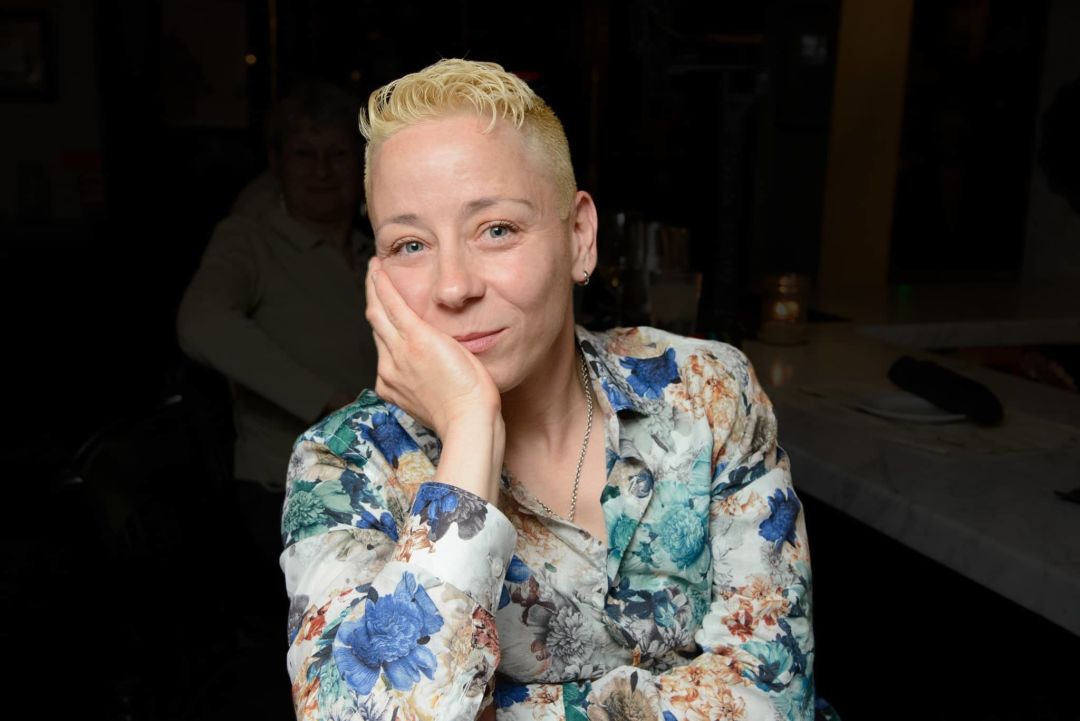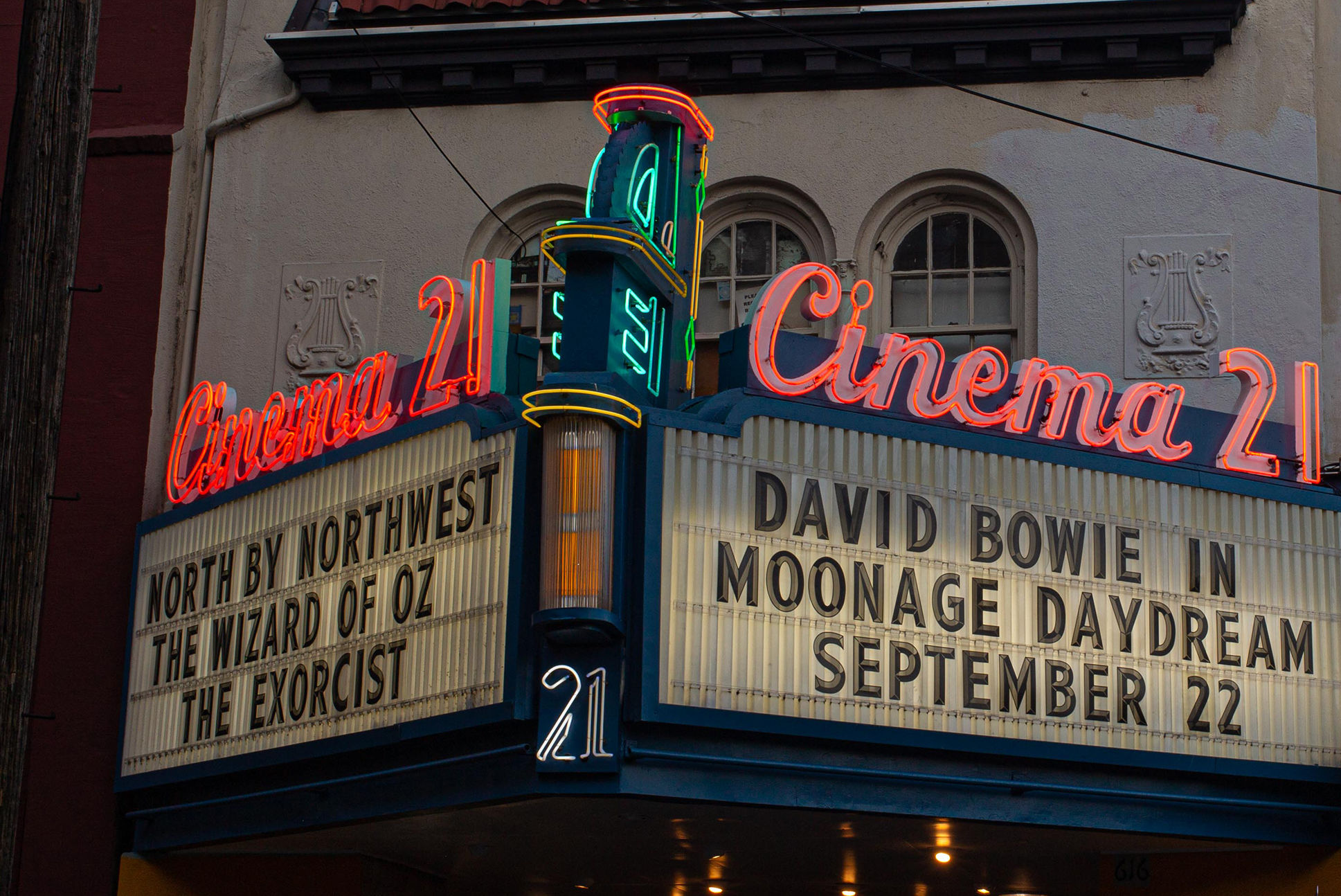RACC Executive Director Madison Cario Comments on Last Week's Restructure

"This was not targeted." Regional Arts and Culture Council executive director Madison Cario opens up about recent reorganization.
Last Tuesday, the Regional Arts and Culture Council announced it had laid off 15 employees and shuttered two departments in a sweeping reorganization.
For anyone living at the (perhaps unsexy) intersection of civics and the arts, it was a big deal. Any shakeup at RACC is a shakeup for Portland’s creative community: the council manages Portland’s public art collection, distributes revenue from the controversial “arts tax,” and provides grants to a massive number of artists living and working in the metro area.
After issuing a press release January 28 about the reorganization, RACC executive director Madison Cario was not available for comment. Portland Monthly was the first to report on the story, and we got a chance to speak with Cario about the changes the following day.
The major takeaway: RACC sees the decision as a fiscal move, an opportunity to “refocus on its core program areas” while incorporating feedback from a 2018 city audit that suggested the council up its fundraising and arts advocacy efforts. RACC will cut costs with a net reduction of five full-time equivalent salaries and bolster fundraising with a dedicated, full-time development position.
The layoffs axed RACC's workplace giving program, which allowed individuals to contribute directly to arts orgs and grant funds via payroll deduction, and ended the council’s involvement with the Right Brain Initiative, which connects teaching artists to nearly 30,000 students in Portland-area public schools. Right Brain will remain in operation, but by July, it will be fully managed by the nonprofit Young Audiences of Oregon and SW Washington.
Shortly after the layoffs were announced, questions swirled about their proximity to a climate report issued by human resources firm Workplace Change, which revealed endemic employee dissatisfaction within RACC. Some employees wondered whether the layoffs were targeted.
“I would say, sadly, based on the climate report, everybody was upset with how things were running here,” Cario says. “So no, this was not targeted.” They note that when Workplace Change CEO Serilda Summers-McGee came to RACC to present conclusions from the report, she asked staff to raise their hands if they were satisfied with RACC’s workplace culture.
“You know not one hand went up in that room,” Cario says.
They say the full extent of the reorganization only came into focus recently, but they’ve been planning some components, including the end of workplace giving, for nearly a year.
And while they maintain that the layoffs were not a clean out—in addition to workplace giving and Right Brain employees, they affected a few IT and communications personnel whose positions RACC deemed redundant—Cario does hope fresh blood will improve RACC’s culture. For the first time, the council will hire a dedicated HR manager, and they plan to hire all new positions using an “equity lens” which will be refined through continued collaboration with Workplace Change and input from other community leaders.
“One strategy we have is [bringing] on a cohort,” Cario says. “Sometimes when you hire one at a time, you’re that one. You’re the one queer person, you’re the one Chinese-American, you’re the one person with a disability. That’s hard. It’s hard for the person, and it’s hard for the community that they’re walking into. So how can we be more intentional about onboarding people as a team?”
Lisa Eisenberg, a teaching artist who’s worked with Right Brain since 2014, found out about the restructure when an email she sent to her liaison at RACC last Tuesday bounced. She was preparing to start a new contract teaching comics illustration to a Kindergarten class, and expected to have one of RACC’s arts integration specialists help lead the way. She says that, by the afternoon, an employee at Young Audiences called her to explain the situation.
“Why the Saturday night massacre vibe?” Eisenberg says. “It seems like it was done in this way that was just cruel and bizarre. All of a sudden your email doesn’t work, all of a sudden your bio’s gone from the website, all of a sudden people I had questions for are just not there anymore.”
Eisenberg says she’s had positive experiences with Young Audiences, both as a Right Brain partner and in her own independent dealings with the organization, but she worries she’ll lose the focused, hands-on support she received from her RACC contacts.
“There's not going to be any downtime where folks don’t have support,” says Young Audiences executive director Cary Clarke. He notes that Young Audiences has always had three dedicated staff members working with Right Brain teaching artists, but did not indicate whether YA would hire new positions to make up for RACC's lost personnel.
"[Right Brain] has always been a changing program model," Clarke says. "Year to year, different responsibilities in terms of who's supporting classroom teachers and who's supporting teaching artists have flowed and changed.... Right Brain is not going anywhere. We're really committed to it, and we're looking forward to working with the community to ensure a strong future for the program."




